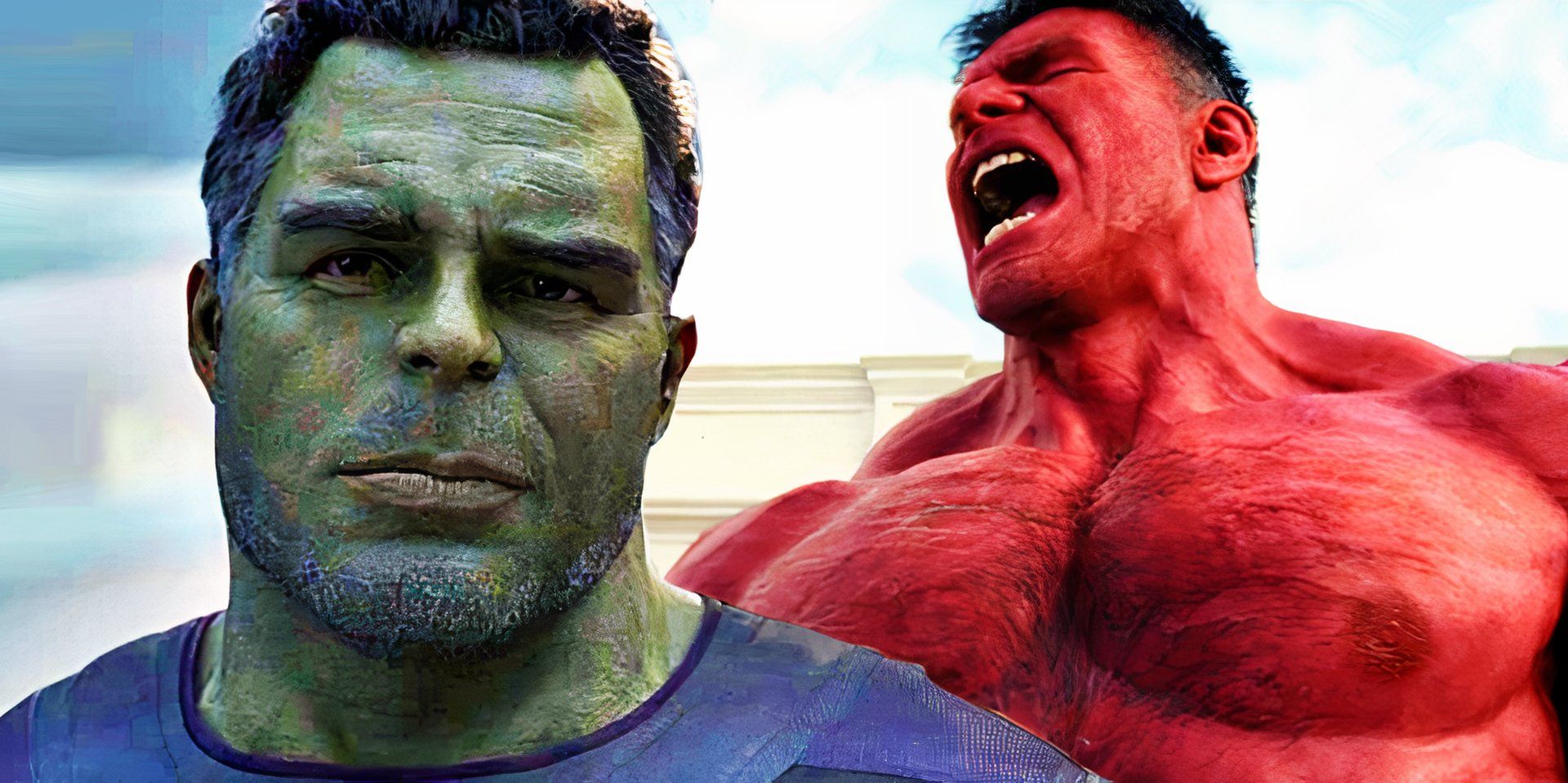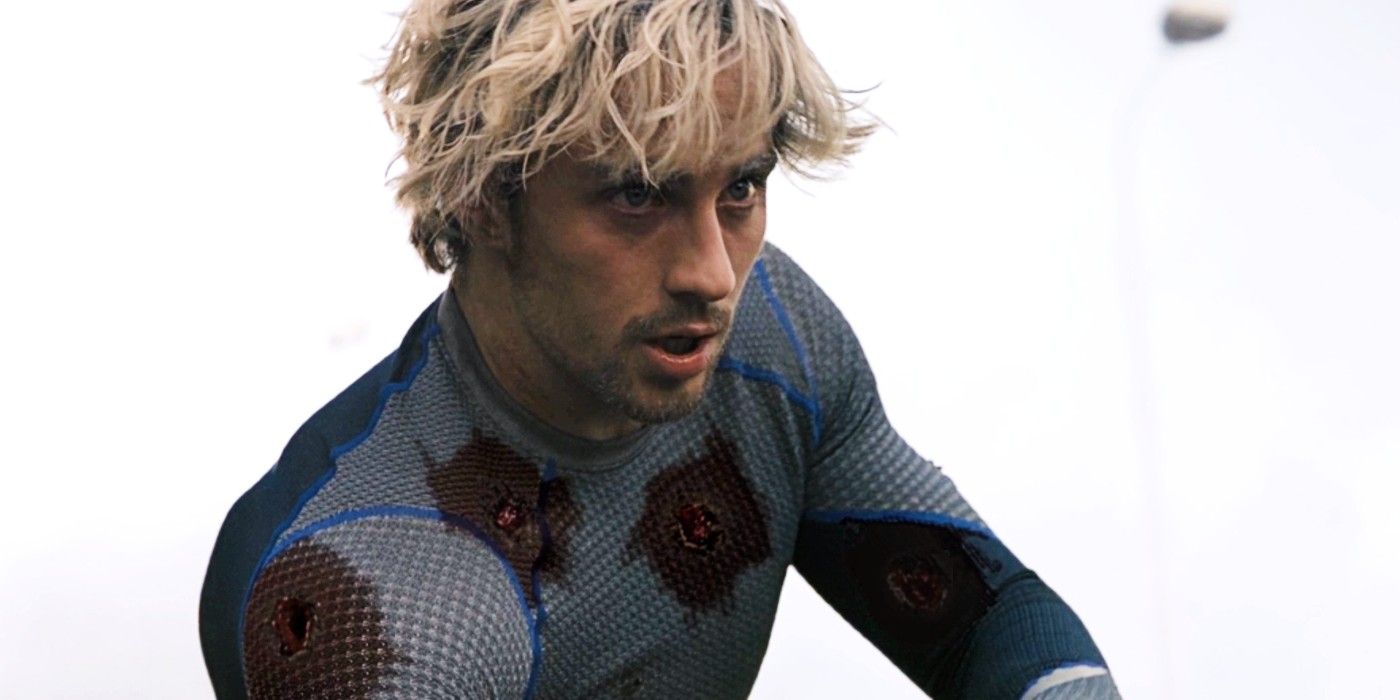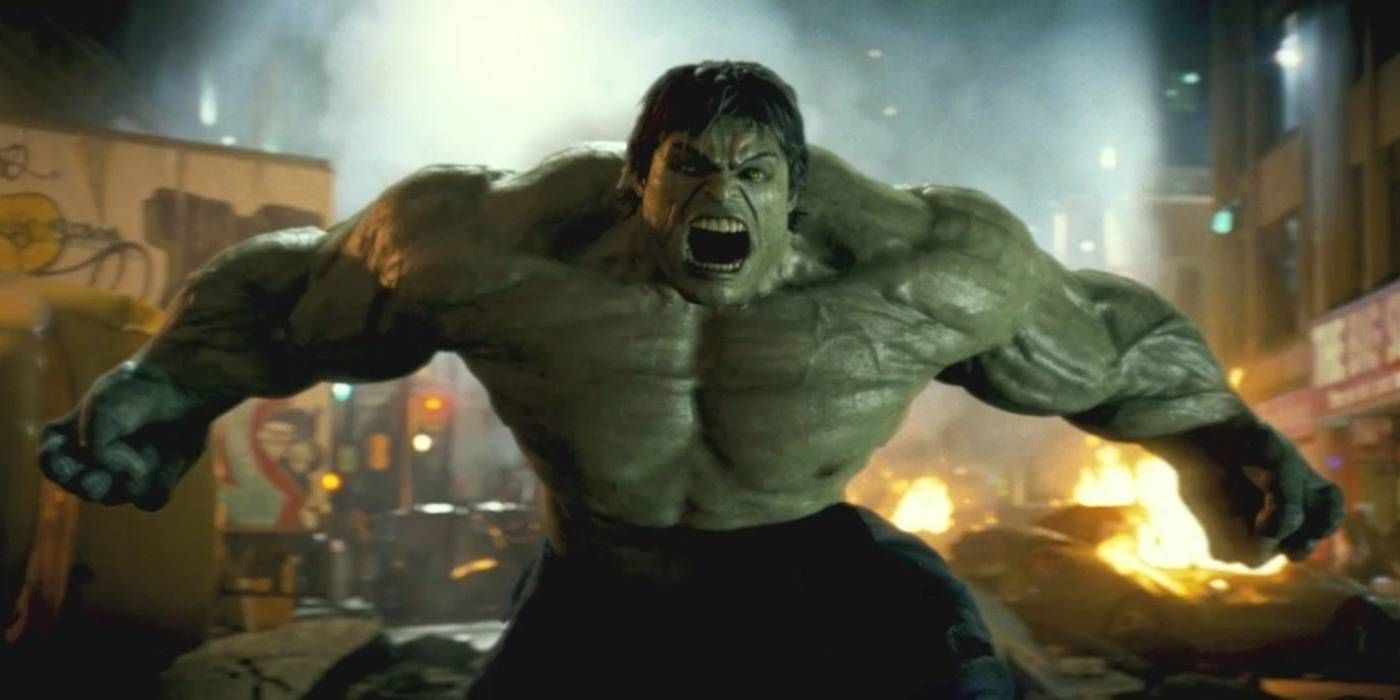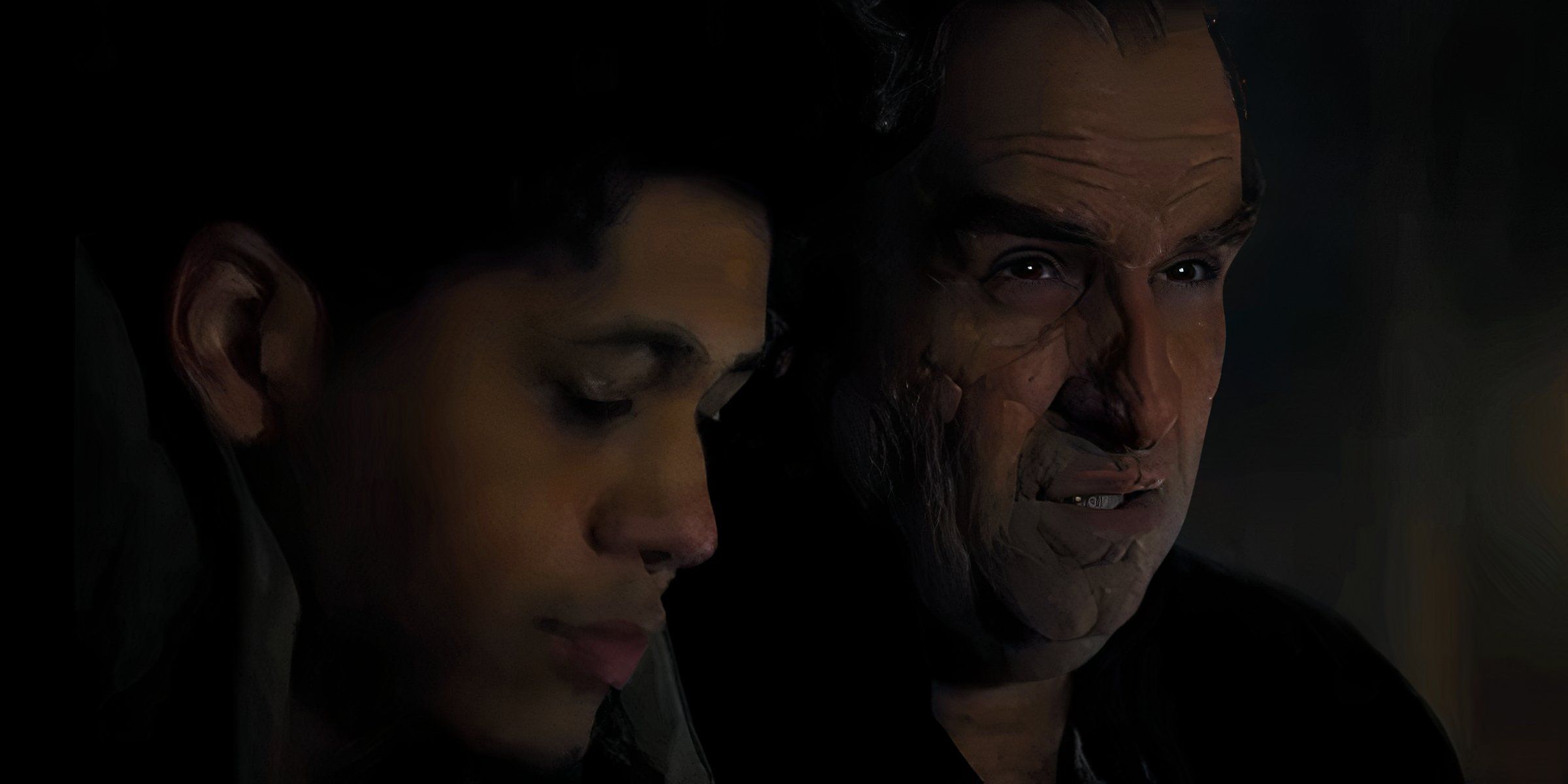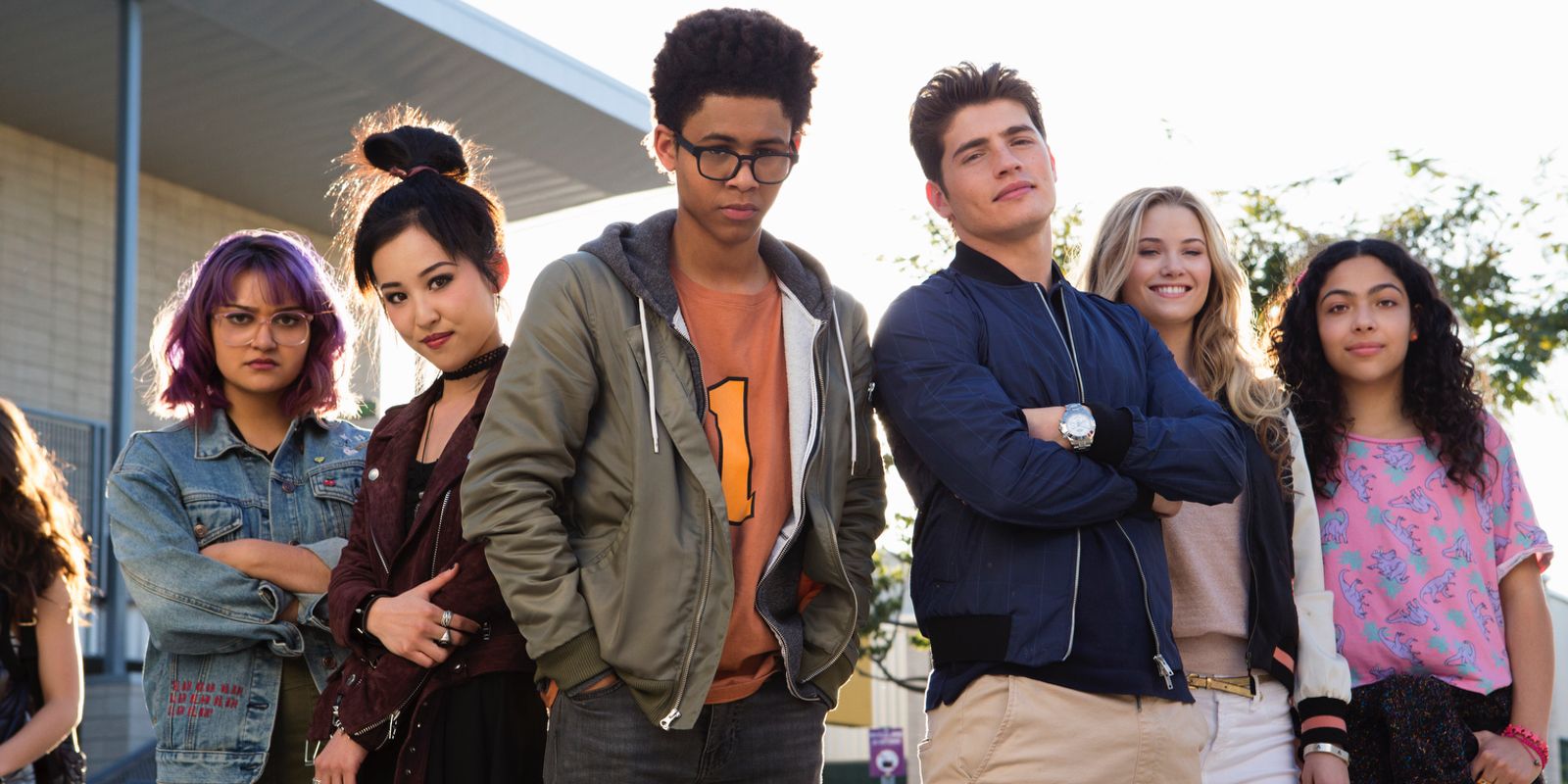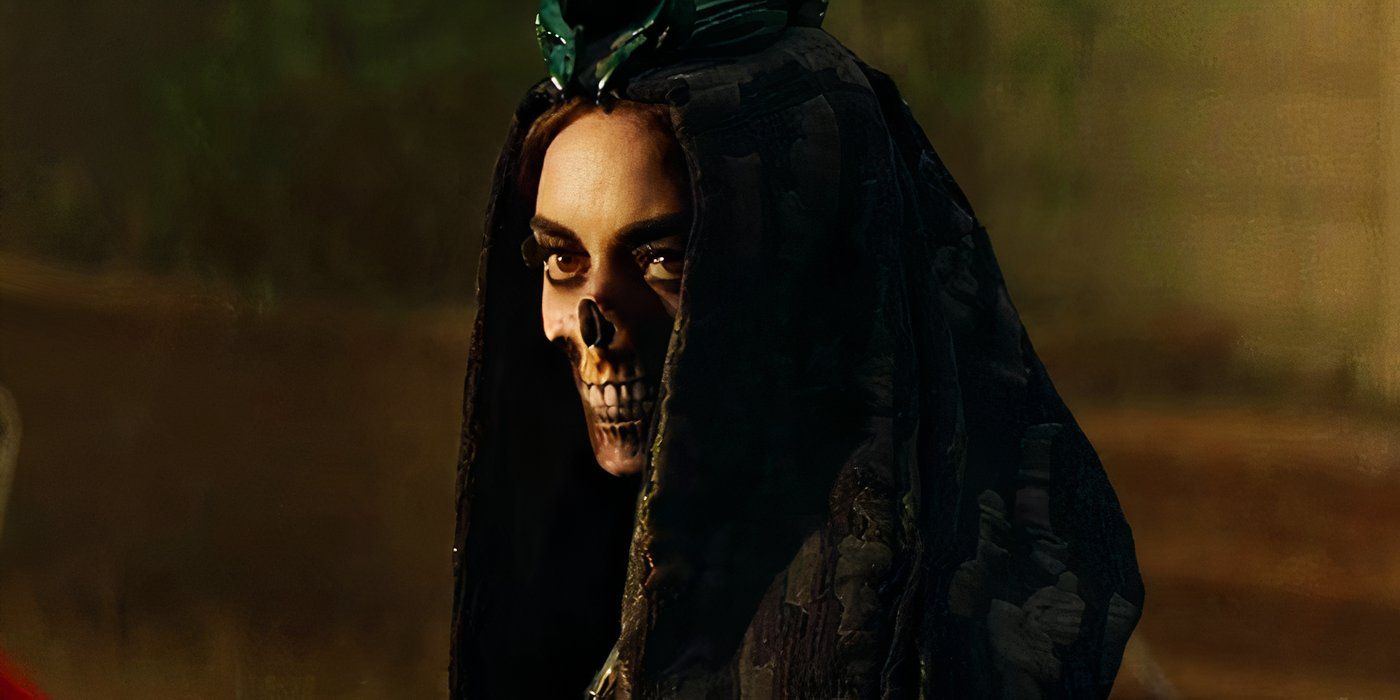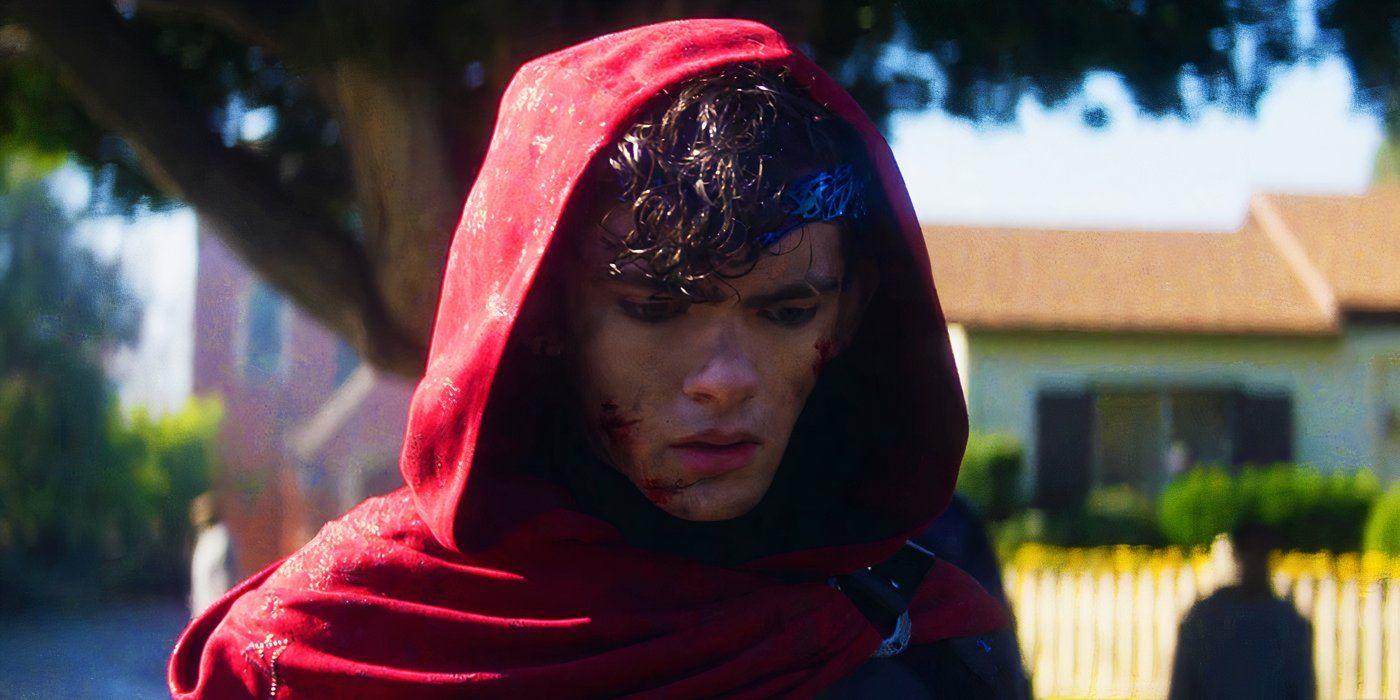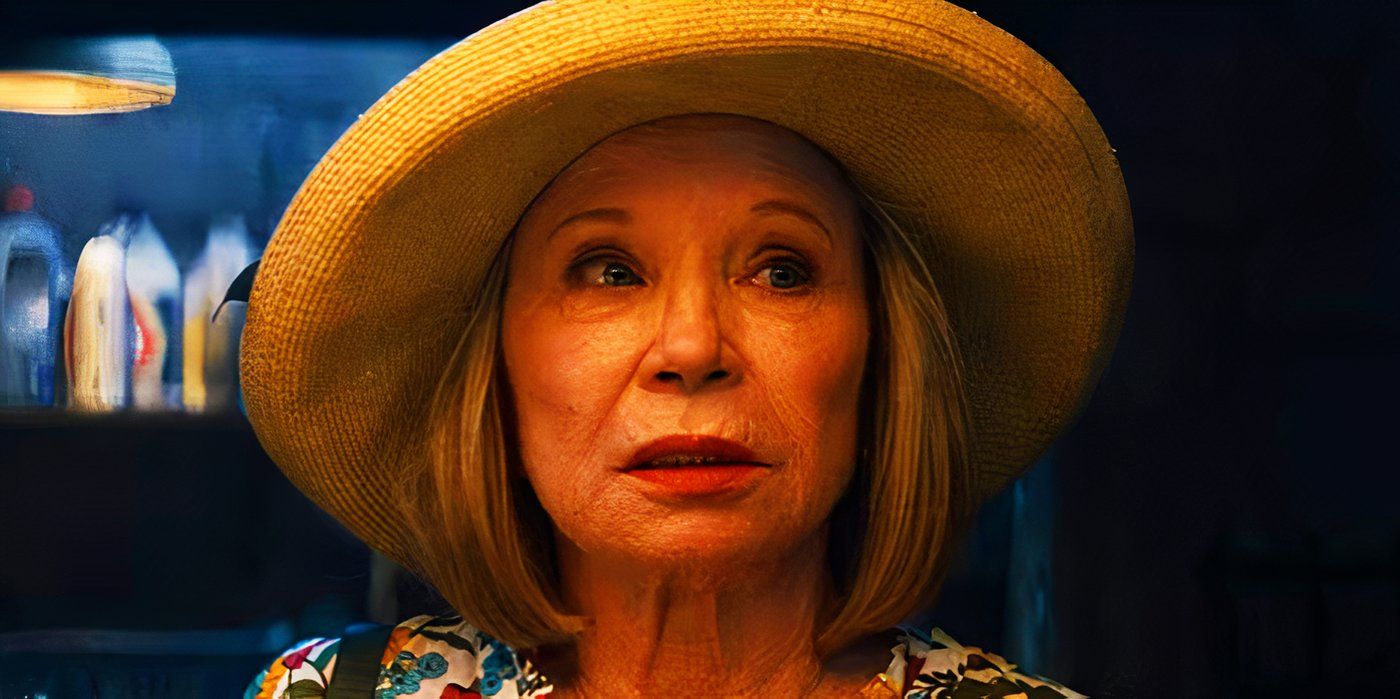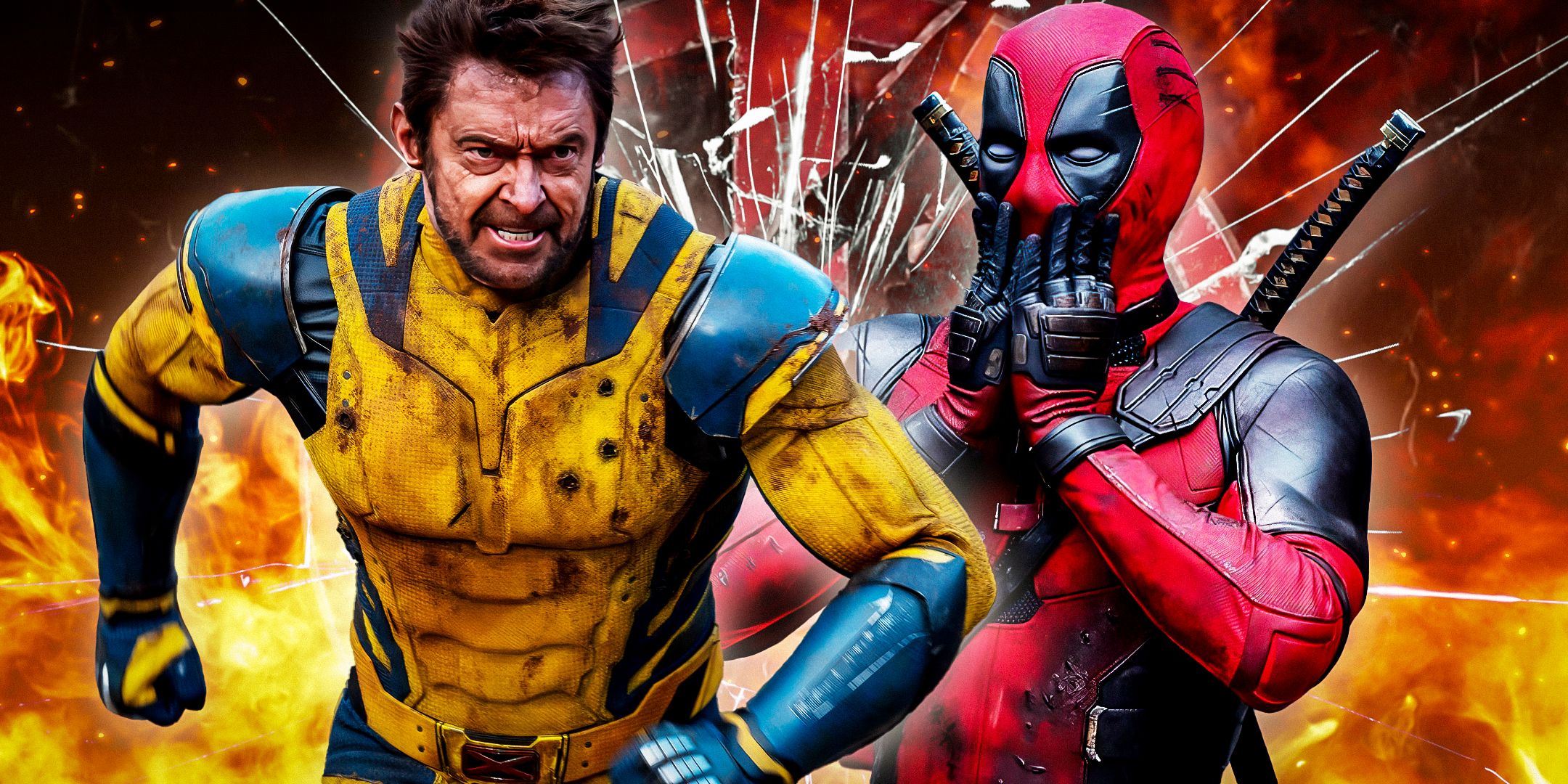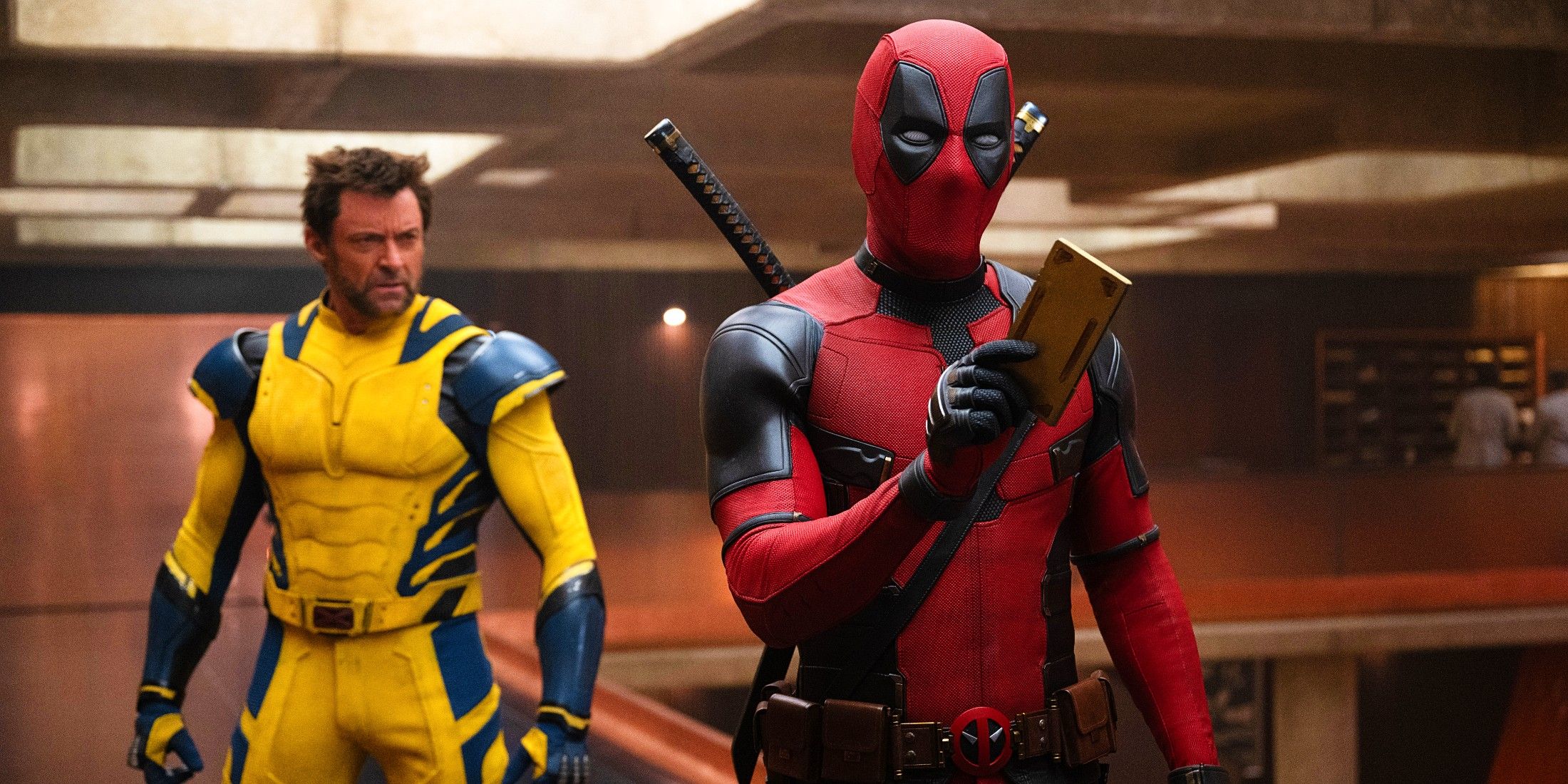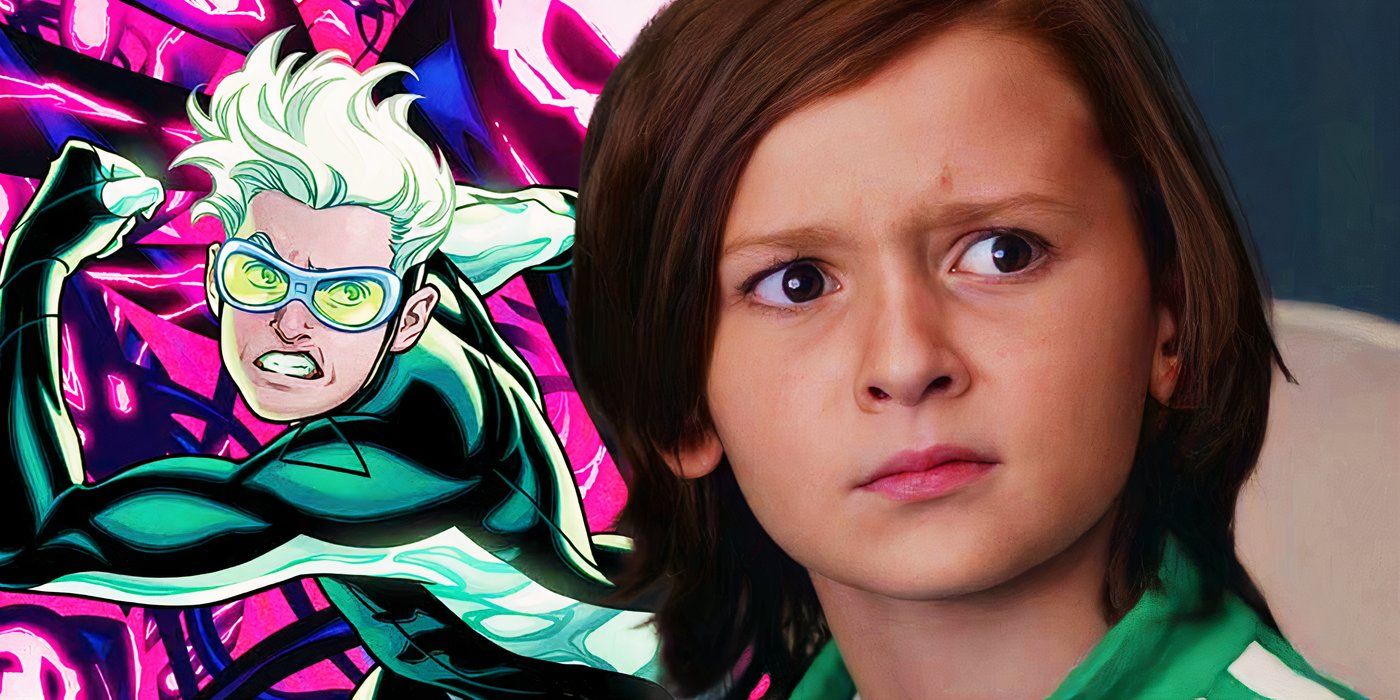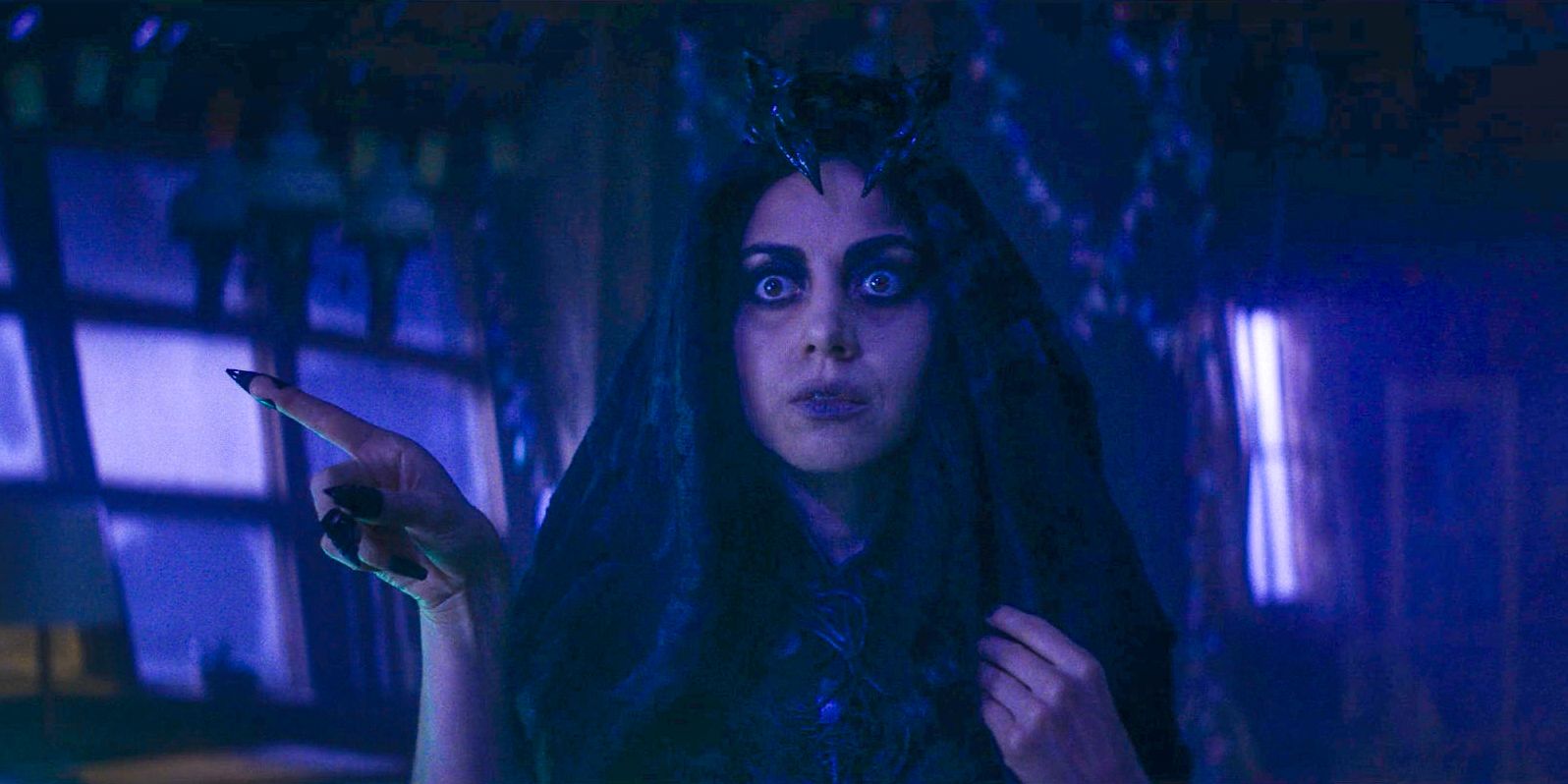Every MCU Hero Blamed For Thanos" Victory In Avengers: Infinity War
Summary
Among viewers, Star-Lord was infamously singled out for his role in allowing Thanos to survive and execute his genocidal plan, with this decision playing a key factor villain's success. Yet, other pivotal characters made perplexing decisions in this part of the MCU timeline that bore intricate and devastating consequences when it came to the fight against Thanos. Despite differing motivations, a range of surprising characters share the responsibility for Thanos' ultimate success in the Avengers: Infinity War, which collectively lead to the initial fatal consequences in the movie's battle against the Mad Titan - though some are more directly responsible than others.
![]() RelatedEvery Upcoming Marvel Movie: Full MCU Phase 5 & 6 List (& Beyond)Between Marvel Studios and Sony Pictures Entertainment, here is every upcoming Marvel movie release date and what we know about the projects so far. 6 Star-Lord Lost His Cool On Titan Played By Chris Pratt
RelatedEvery Upcoming Marvel Movie: Full MCU Phase 5 & 6 List (& Beyond)Between Marvel Studios and Sony Pictures Entertainment, here is every upcoming Marvel movie release date and what we know about the projects so far. 6 Star-Lord Lost His Cool On Titan Played By Chris Pratt ![]() In Infinity Wars' dramatic climax, the Guardians of the Galaxy, Doctor Strange, Iron Man, and Spider-Man engaged Thanos in a battle on the planet Titan. However, Star-Lord's emotional turmoil proved to be both a weakness and a tragic turning point. After learning of Gamora's death at the hands of the Mad Titan, Star-Lord completely lost himself to a grief-fueled rage. His emotional outburst culminated in Quill momentarily abandoning the carefully laid plan and punching Thanos. Peter Quill's impulsive reaction interfered with the heroes' attempt to restrain Thanos, allowing him to regain control just as the Infinity Gauntlet was about to slip from his hand.
In Infinity Wars' dramatic climax, the Guardians of the Galaxy, Doctor Strange, Iron Man, and Spider-Man engaged Thanos in a battle on the planet Titan. However, Star-Lord's emotional turmoil proved to be both a weakness and a tragic turning point. After learning of Gamora's death at the hands of the Mad Titan, Star-Lord completely lost himself to a grief-fueled rage. His emotional outburst culminated in Quill momentarily abandoning the carefully laid plan and punching Thanos. Peter Quill's impulsive reaction interfered with the heroes' attempt to restrain Thanos, allowing him to regain control just as the Infinity Gauntlet was about to slip from his hand.
This played a pivotal role in determining the fate of the universe, allowing Thanos to escape Titan and enact his murderous plan. The heart-wrenching scene highlighted the nature of heroism when confronted with the weight of personal loss. Star-Lord's decision, born out of love and anguish, ultimately played a significant role in shaping the devastating outcome in Avengers: Infinity War. The scene proved to be a point of contention among fans and even James Gunn. Though later, in Guardians of the Galaxay Vol. 3, Pratt's Star-Lord admits Thanos' victory was his fault,
5 Captain America Couldn't See The Bigger Picture Played By Chris Evans Close The Marvels director Nia DaCosta has been very vocal about her opinion that Captain America is to blame for Thanos' victory in Avengers: Infinity War (via CBR). DaCoasta explained,"The reason why it’s his fault is the reason why he’s such an amazing hero, because he’s like, 'We’re not gonna sacrifice anyone. There always has to be another way.' He was incorrect," DaCosta said. "But then also, he was right in the end, 'cause everything was fine. We did lose some people that we care about, but it is his fault, because he should’ve just ripped that thing out of his homie’s [Vision’s] head from the beginning."
Indeed, Captain America's insistence that nobody be sacrificed in defeating Thanos cost half the universe. If he had relented and allowed his comrades to remove the Mind Stone from Vision's forehead before the final fray, Thanos may not have been able to collect them all. Captain America is defined by his morality and leadership skills, and in this case, these traits greatly hindered Earth's Mightiest Heroes.
4 Thor Should Have Aimed For The Head Played By Chris Hemsworth Close Thor's arrival at the Battle of Wakanda was a thrilling and rousing moment which seemed like it would spell the end for Thanos. Hurling Stormbreaker at the Mad Titan, it appeared as if Thor had indeed saved the day. However, Thanos retained enough strength to snap his fingers and enact his plan to decimate half the universe. Thor blamed himself for Thanos' victory, especially after the villain himself told Thor "you should have gone for the head," resulting in the hero being fueled by his grief after witnessing Loki and the Asgardians perish at the hands of the Mad Titan. Convinced that Thanos could have been stopped if only he had acted more quickly, Thor spiraled into a pit of depression.
This self-imposed burden followed Thor throughout Avengers: Endgame, where he tried desperately to redeem himself in his own eyes. The God of Thunder assumed the blame for half the universe dying and subsequently grappled with deep feelings of inadequacy and regret - feelings which Thor dealt with by binge-drinking and overeating. Despite imposing such stringent self-blame, Thor was arguably the least responsible for Thanos' victory, but his character arc did allow for a complex exploration of heroism, grief, and resilience.
3 Bruce Banner Couldn't Transform Into THe Hulk Played By Mark Ruffalo![]() Throughout Avengers: Infinity War, Bruce Banner struggled to transform into the Hulk in time for the battle with Thanos. This was largely due to the Hulk's defeat while confronting Thanos in the opening scene. As a result, Bruce Banner was forced to engage in the Battle of Wakanda while wearing Iron Man's Hulkbuster armor. Though still a force to be reckoned with, Banner's strength paled in comparison to the potential of the Hulk.
Throughout Avengers: Infinity War, Bruce Banner struggled to transform into the Hulk in time for the battle with Thanos. This was largely due to the Hulk's defeat while confronting Thanos in the opening scene. As a result, Bruce Banner was forced to engage in the Battle of Wakanda while wearing Iron Man's Hulkbuster armor. Though still a force to be reckoned with, Banner's strength paled in comparison to the potential of the Hulk.
This drove the scientist to combine his psyche with the Hulk's physique in the years between Infinity War and Avengers: Endgame, citing his own sense of responsibility for Thanos' victory. However, Banner blaming himself is as unjust as Thor. The very nature of the Hulk is an unpredictable heft of rage and muscle. Banner is traditionally defined by his lack of control over the Hulk, and the notion that Banner should be blamed for this is entirely unfair. Nevertheless, Banner enjoyed his new identity as Professor Hulk, and the MCU continues to see this iteration of the character.
2 Doctor Strange Gave Thanos The Time Stone Played By Benedict Cumberbatch![]() During the battle on Titan, the heroes were roundly defeated by Thanos. As Thanos was about to kill Iron Man, Doctor Strange implored him to stop, offering him the Time Stone in exchange for Stark's life. Doctor Strange's culpability here was interesting because it seemed entirely unjustified at the time - unlike several other heroes who have been blamed for Thanos' victory. Many characters engaged in understandable actions that later proved to be misguided. Doctor Stange was the inverse of this.
During the battle on Titan, the heroes were roundly defeated by Thanos. As Thanos was about to kill Iron Man, Doctor Strange implored him to stop, offering him the Time Stone in exchange for Stark's life. Doctor Strange's culpability here was interesting because it seemed entirely unjustified at the time - unlike several other heroes who have been blamed for Thanos' victory. Many characters engaged in understandable actions that later proved to be misguided. Doctor Stange was the inverse of this.
Doctor Strange's rationale was not disclosed until Endgame, and at the time seemed like a baffling choice. However, in hindsight, it makes sense. Thanos could certainly have taken the Time Stone from Doctor Strange with ease, and Iron Man's sacrifice was necessary to defeat the Titan in Endgame, meaning therefore thathis survival in Infinity War was essential - even if it meant losing the battle, and giving the Time Stone to Thanos.
1 Gamora Led Thanos To The Soul Stone Played By Zoe Saldaña![]() It was revealed in Infinity War that Gamora knew the location of the Soul Stone, having been sent by Thanos (her step-father) to find it years before her eventual reform. This is why she asked Star-Lord to shoot her if Thanos was successful in capturing her. However, after capturing and torturing Gamora's sister, Nebula, Gamora relented and divulged the stone's location - Vormir.
It was revealed in Infinity War that Gamora knew the location of the Soul Stone, having been sent by Thanos (her step-father) to find it years before her eventual reform. This is why she asked Star-Lord to shoot her if Thanos was successful in capturing her. However, after capturing and torturing Gamora's sister, Nebula, Gamora relented and divulged the stone's location - Vormir.
Ultimately, this led Thanos to the Soul Stone, where Thanos threw his favorite daughter to her death in order to complete his mission. Essentially, Gamora's momentary lapse of judgment was driven by her love for Nebula, but proved to be a critical factor in Thanos' triumph. Her unwitting role was indicative of all those with some culpability for Thanos' victory in Avengers: Infinity War - misguided heroes who briefly succumbed to their emotions, allowing Thanos' relentless pursuit to continue.
Source: CBR
[圖擷取自網路,如有疑問請私訊]
- Takeaway 1: Star-Lord's emotional outburst allowed Thanos to escape and execute his genocidal plan. His decision, driven by grief, played a significant role in the devastating outcome.
- Takeaway 2: Captain America's refusal to sacrifice anyone hindered the Avengers' efforts to defeat Thanos, ultimately leading to the loss of half the universe.
- Takeaway 3: Thor's failure to aim for the head and stop Thanos in his tracks fueled his guilt and self-blame, leading to a spiral of depression and feelings of inadequacy.
Among viewers, Star-Lord was infamously singled out for his role in allowing Thanos to survive and execute his genocidal plan, with this decision playing a key factor villain's success. Yet, other pivotal characters made perplexing decisions in this part of the MCU timeline that bore intricate and devastating consequences when it came to the fight against Thanos. Despite differing motivations, a range of surprising characters share the responsibility for Thanos' ultimate success in the Avengers: Infinity War, which collectively lead to the initial fatal consequences in the movie's battle against the Mad Titan - though some are more directly responsible than others.
 RelatedEvery Upcoming Marvel Movie: Full MCU Phase 5 & 6 List (& Beyond)Between Marvel Studios and Sony Pictures Entertainment, here is every upcoming Marvel movie release date and what we know about the projects so far. 6 Star-Lord Lost His Cool On Titan Played By Chris Pratt
RelatedEvery Upcoming Marvel Movie: Full MCU Phase 5 & 6 List (& Beyond)Between Marvel Studios and Sony Pictures Entertainment, here is every upcoming Marvel movie release date and what we know about the projects so far. 6 Star-Lord Lost His Cool On Titan Played By Chris Pratt  In Infinity Wars' dramatic climax, the Guardians of the Galaxy, Doctor Strange, Iron Man, and Spider-Man engaged Thanos in a battle on the planet Titan. However, Star-Lord's emotional turmoil proved to be both a weakness and a tragic turning point. After learning of Gamora's death at the hands of the Mad Titan, Star-Lord completely lost himself to a grief-fueled rage. His emotional outburst culminated in Quill momentarily abandoning the carefully laid plan and punching Thanos. Peter Quill's impulsive reaction interfered with the heroes' attempt to restrain Thanos, allowing him to regain control just as the Infinity Gauntlet was about to slip from his hand.
In Infinity Wars' dramatic climax, the Guardians of the Galaxy, Doctor Strange, Iron Man, and Spider-Man engaged Thanos in a battle on the planet Titan. However, Star-Lord's emotional turmoil proved to be both a weakness and a tragic turning point. After learning of Gamora's death at the hands of the Mad Titan, Star-Lord completely lost himself to a grief-fueled rage. His emotional outburst culminated in Quill momentarily abandoning the carefully laid plan and punching Thanos. Peter Quill's impulsive reaction interfered with the heroes' attempt to restrain Thanos, allowing him to regain control just as the Infinity Gauntlet was about to slip from his hand.This played a pivotal role in determining the fate of the universe, allowing Thanos to escape Titan and enact his murderous plan. The heart-wrenching scene highlighted the nature of heroism when confronted with the weight of personal loss. Star-Lord's decision, born out of love and anguish, ultimately played a significant role in shaping the devastating outcome in Avengers: Infinity War. The scene proved to be a point of contention among fans and even James Gunn. Though later, in Guardians of the Galaxay Vol. 3, Pratt's Star-Lord admits Thanos' victory was his fault,
5 Captain America Couldn't See The Bigger Picture Played By Chris Evans Close The Marvels director Nia DaCosta has been very vocal about her opinion that Captain America is to blame for Thanos' victory in Avengers: Infinity War (via CBR). DaCoasta explained,"The reason why it’s his fault is the reason why he’s such an amazing hero, because he’s like, 'We’re not gonna sacrifice anyone. There always has to be another way.' He was incorrect," DaCosta said. "But then also, he was right in the end, 'cause everything was fine. We did lose some people that we care about, but it is his fault, because he should’ve just ripped that thing out of his homie’s [Vision’s] head from the beginning."
Indeed, Captain America's insistence that nobody be sacrificed in defeating Thanos cost half the universe. If he had relented and allowed his comrades to remove the Mind Stone from Vision's forehead before the final fray, Thanos may not have been able to collect them all. Captain America is defined by his morality and leadership skills, and in this case, these traits greatly hindered Earth's Mightiest Heroes.
4 Thor Should Have Aimed For The Head Played By Chris Hemsworth Close Thor's arrival at the Battle of Wakanda was a thrilling and rousing moment which seemed like it would spell the end for Thanos. Hurling Stormbreaker at the Mad Titan, it appeared as if Thor had indeed saved the day. However, Thanos retained enough strength to snap his fingers and enact his plan to decimate half the universe. Thor blamed himself for Thanos' victory, especially after the villain himself told Thor "you should have gone for the head," resulting in the hero being fueled by his grief after witnessing Loki and the Asgardians perish at the hands of the Mad Titan. Convinced that Thanos could have been stopped if only he had acted more quickly, Thor spiraled into a pit of depression.
This self-imposed burden followed Thor throughout Avengers: Endgame, where he tried desperately to redeem himself in his own eyes. The God of Thunder assumed the blame for half the universe dying and subsequently grappled with deep feelings of inadequacy and regret - feelings which Thor dealt with by binge-drinking and overeating. Despite imposing such stringent self-blame, Thor was arguably the least responsible for Thanos' victory, but his character arc did allow for a complex exploration of heroism, grief, and resilience.
3 Bruce Banner Couldn't Transform Into THe Hulk Played By Mark Ruffalo
 Throughout Avengers: Infinity War, Bruce Banner struggled to transform into the Hulk in time for the battle with Thanos. This was largely due to the Hulk's defeat while confronting Thanos in the opening scene. As a result, Bruce Banner was forced to engage in the Battle of Wakanda while wearing Iron Man's Hulkbuster armor. Though still a force to be reckoned with, Banner's strength paled in comparison to the potential of the Hulk.
Throughout Avengers: Infinity War, Bruce Banner struggled to transform into the Hulk in time for the battle with Thanos. This was largely due to the Hulk's defeat while confronting Thanos in the opening scene. As a result, Bruce Banner was forced to engage in the Battle of Wakanda while wearing Iron Man's Hulkbuster armor. Though still a force to be reckoned with, Banner's strength paled in comparison to the potential of the Hulk.This drove the scientist to combine his psyche with the Hulk's physique in the years between Infinity War and Avengers: Endgame, citing his own sense of responsibility for Thanos' victory. However, Banner blaming himself is as unjust as Thor. The very nature of the Hulk is an unpredictable heft of rage and muscle. Banner is traditionally defined by his lack of control over the Hulk, and the notion that Banner should be blamed for this is entirely unfair. Nevertheless, Banner enjoyed his new identity as Professor Hulk, and the MCU continues to see this iteration of the character.
2 Doctor Strange Gave Thanos The Time Stone Played By Benedict Cumberbatch
 During the battle on Titan, the heroes were roundly defeated by Thanos. As Thanos was about to kill Iron Man, Doctor Strange implored him to stop, offering him the Time Stone in exchange for Stark's life. Doctor Strange's culpability here was interesting because it seemed entirely unjustified at the time - unlike several other heroes who have been blamed for Thanos' victory. Many characters engaged in understandable actions that later proved to be misguided. Doctor Stange was the inverse of this.
During the battle on Titan, the heroes were roundly defeated by Thanos. As Thanos was about to kill Iron Man, Doctor Strange implored him to stop, offering him the Time Stone in exchange for Stark's life. Doctor Strange's culpability here was interesting because it seemed entirely unjustified at the time - unlike several other heroes who have been blamed for Thanos' victory. Many characters engaged in understandable actions that later proved to be misguided. Doctor Stange was the inverse of this.Doctor Strange's rationale was not disclosed until Endgame, and at the time seemed like a baffling choice. However, in hindsight, it makes sense. Thanos could certainly have taken the Time Stone from Doctor Strange with ease, and Iron Man's sacrifice was necessary to defeat the Titan in Endgame, meaning therefore thathis survival in Infinity War was essential - even if it meant losing the battle, and giving the Time Stone to Thanos.
1 Gamora Led Thanos To The Soul Stone Played By Zoe Saldaña
 It was revealed in Infinity War that Gamora knew the location of the Soul Stone, having been sent by Thanos (her step-father) to find it years before her eventual reform. This is why she asked Star-Lord to shoot her if Thanos was successful in capturing her. However, after capturing and torturing Gamora's sister, Nebula, Gamora relented and divulged the stone's location - Vormir.
It was revealed in Infinity War that Gamora knew the location of the Soul Stone, having been sent by Thanos (her step-father) to find it years before her eventual reform. This is why she asked Star-Lord to shoot her if Thanos was successful in capturing her. However, after capturing and torturing Gamora's sister, Nebula, Gamora relented and divulged the stone's location - Vormir.Ultimately, this led Thanos to the Soul Stone, where Thanos threw his favorite daughter to her death in order to complete his mission. Essentially, Gamora's momentary lapse of judgment was driven by her love for Nebula, but proved to be a critical factor in Thanos' triumph. Her unwitting role was indicative of all those with some culpability for Thanos' victory in Avengers: Infinity War - misguided heroes who briefly succumbed to their emotions, allowing Thanos' relentless pursuit to continue.
Source: CBR
[圖擷取自網路,如有疑問請私訊]
|
本篇 |
不想錯過? 請追蹤FB專頁! |
| 喜歡這篇嗎?快分享吧! |
相關文章
tag_marvel









